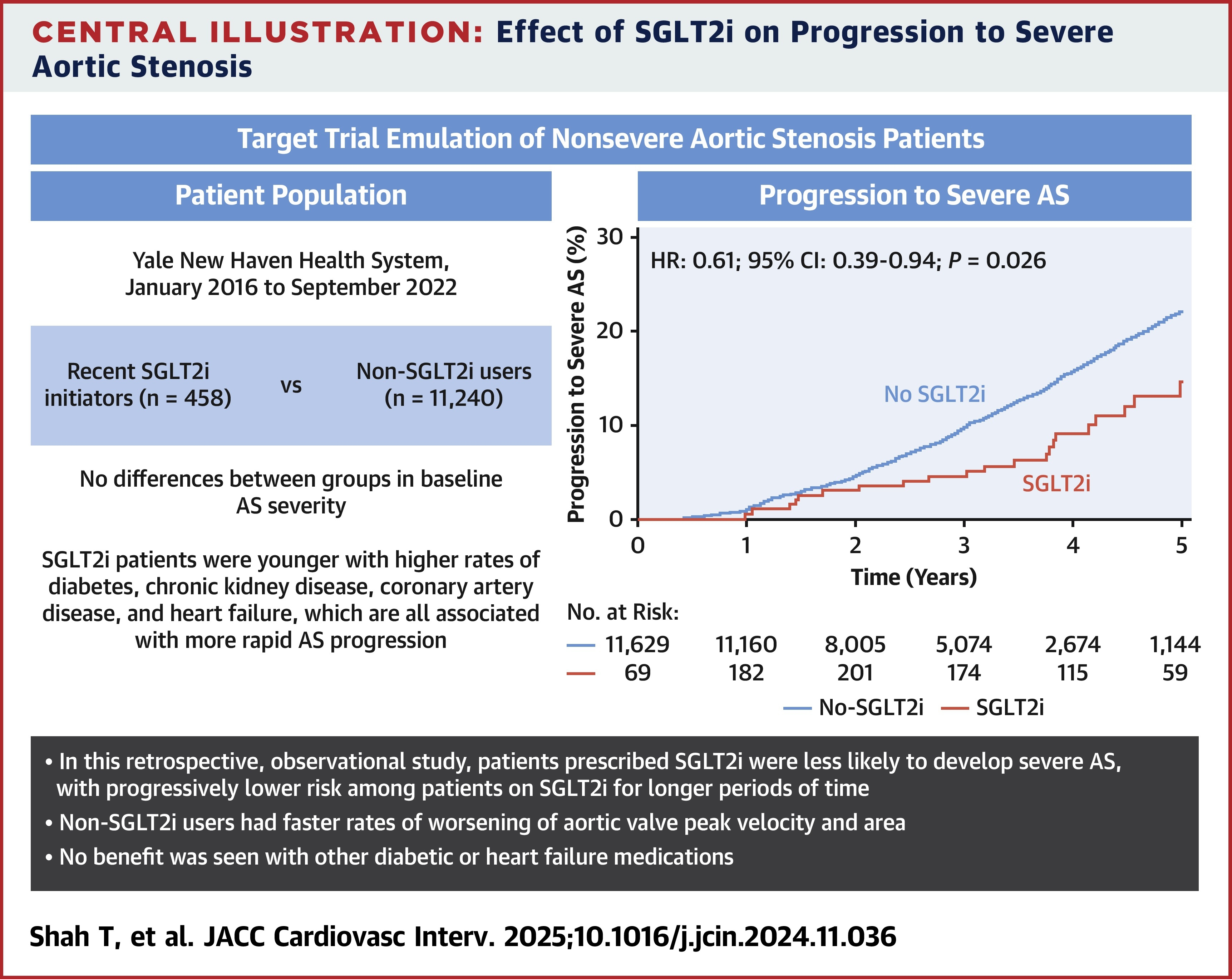Exposure-Dependent Protective Effect of SGLT2 Inhibitors on AS Progression?
SGLT2 inhibitors may slow the progression of nonsevere aortic stenosis (AS), according to a study published Feb. 19 in JACC: Cardiovascular Interventions.
In this multicenter observational study, Tayyab Shah, MD, et al., used retrospective electronic medical record data from the Yale New Haven Health System from January 2016 to September 2022 to follow 11,698 patients with native aortic valve sclerosis (66%) or nonsevere AS (23% mild stenosis, 11% moderate) for progression to severe AS.
Patients taking an SGLT2 inhibitor (n=458) were more likely to be younger and non-White, with an LVEF ≤40%, higher body mass index, and higher rates of diabetes, chronic kidney disease and coronary artery disease. Patients started an SGLT2 inhibitor a median of 1.4 years after study entry and took it for a median of 0.9 years.
Results showed that 21 patients (4.6%) taking an SGLT2 inhibitor progressed to severe AS over five years compared with 1,223 patients (10.9%) not taking the medication (p<0.001). Additionally, those taking an SGLT2 inhibitor, compared with those who were not, were less likely to progress to severe AS (hazard ratio [HR], 0.61; 95% CI, 0.39-0.94; p=0.03), with progressively lower risk the longer a patient was taking the medication (HR, 0.54, 0.48 and 0.27 for more than three, six and 12 months, respectively).

Predictors of progression to severe AS included age, White race, coronary artery disease, baseline AS vs. sclerosis, any aortic regurgitation, bicuspid aortic valve and any mitral stenosis.
"SGLT2 inhibitors have antifibrotic, antioxidative and potential anti-inflammatory effects, which could be disease-modifying in AS," write the authors. They note that the association of benefit with the medication was consistent for the clinically relevant endpoint of progression to severe AS as well as hemodynamic parameters of progression, and was consistent across all tested subgroups.
In an accompanying editorial comment, Brian R. Lindman, MD, FACC, and Bassim El-Sabawi, MD, note that further prospective studies with longer follow-up and larger size are needed, and this avenue of investigation is promising.
"There are numerous reasons why SGLT2 inhibitors would make sense to prevent or mitigate maladaptive hypertrophic remodeling/dysfunction in the heart experiencing pressure overload from AS," they write. Now there are data suggesting the drug also may be "effective in targeting the valve to slow progressive valve obstruction," they add. "The findings point to an intriguing opportunity: a '2 for 1' medical therapy trial in patients with earlier stage AS, namely one that targets both the valve and the myocardium."
Clinical Topics: Valvular Heart Disease
Keywords: Aortic Valve Stenosis, Sodium-Glucose Transporter 2 Inhibitors
< Back to Listings
